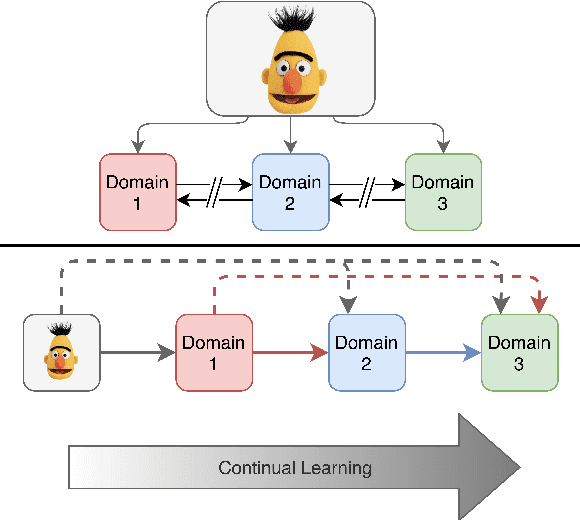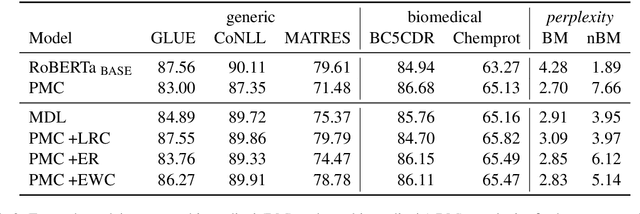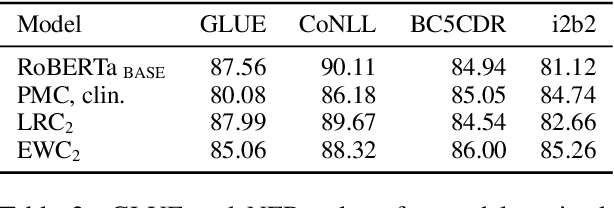CALM: Continuous Adaptive Learning for Language Modeling
Paper and Code
Apr 08, 2020



Training large language representation models has become a standard in the natural language processing community. This allows for fine tuning on any number of specific tasks, however, these large high capacity models can continue to train on domain specific unlabeled data to make initialization even more robust for supervised tasks. We demonstrate that in practice these pre-trained models present performance deterioration in the form of catastrophic forgetting when evaluated on tasks from a general domain such as GLUE. In this work we propose CALM, Continuous Adaptive Learning for Language Modeling: techniques to render models which retain knowledge across multiple domains. With these methods, we are able to reduce the performance gap across supervised tasks introduced by task specific models which we demonstrate using a continual learning setting in biomedical and clinical domains.
 Add to Chrome
Add to Chrome Add to Firefox
Add to Firefox Add to Edge
Add to Edge